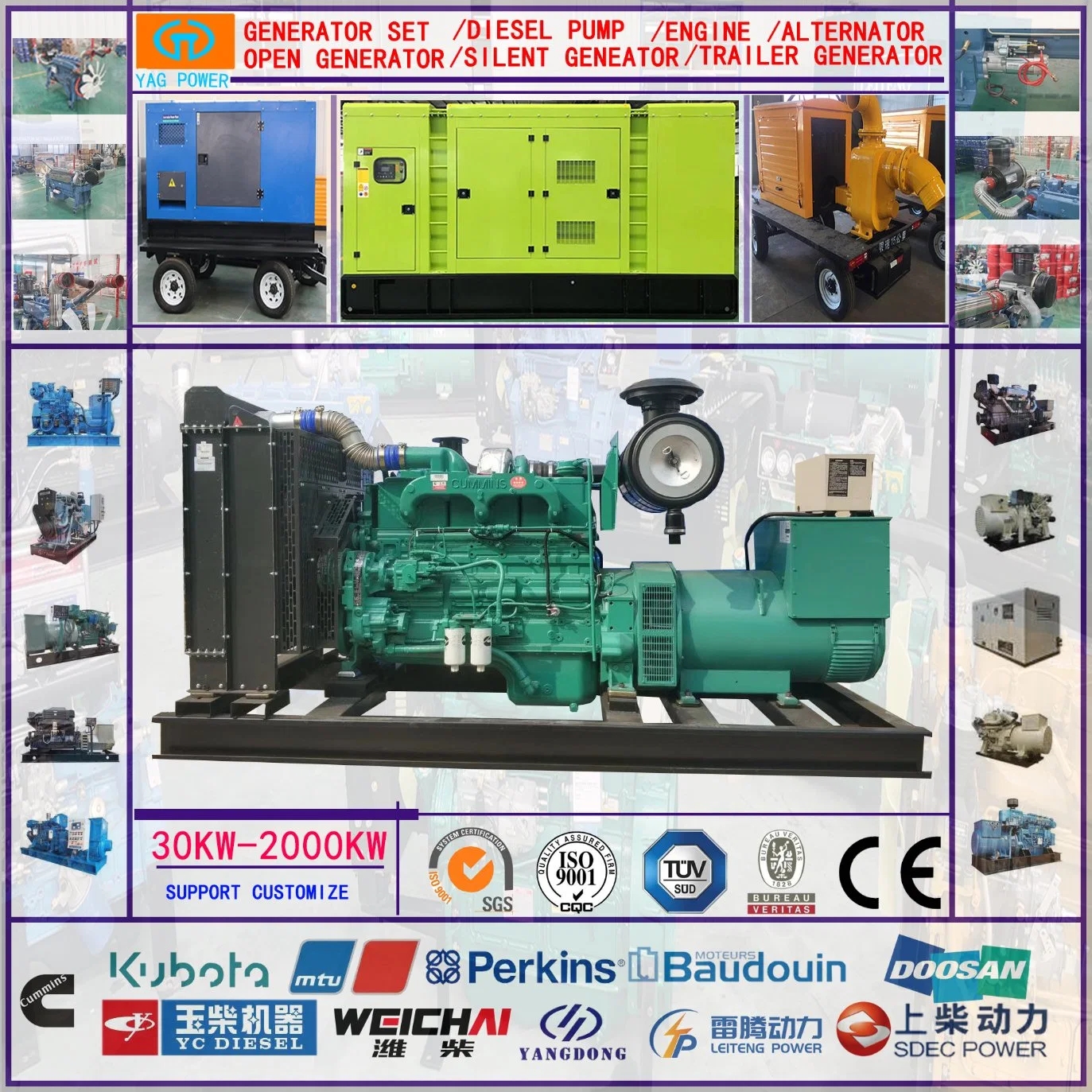Diesel Generators for Remote Power Supply Reliable and Efficient Solutions for Off-Grid Locations

Introduction
In remote areas where access to the main power grid is limited or non-existent, alternative power sources are crucial for ensuring a reliable supply of electricity. Diesel generators have long been a popular choice for providing power in such off-grid locations due to their reliability, efficiency, and versatility. This article explores the use of diesel generators for remote power supply, highlighting their benefits, applications, and considerations for implementation.
1. Overview of Diesel Generators
Diesel generators are a type of internal combustion engine that generates electricity by burning diesel fuel. They consist of a diesel engine coupled with an electric generator that converts the mechanical energy produced by the engine into electrical energy. Diesel generators are available in a wide range of sizes and power capacities, making them suitable for a variety of applications, from small residential backup systems to large-scale industrial power plants.
2. Benefits of Diesel Generators for Remote Power Supply
Diesel generators offer several key advantages that make them well-suited for providing power in remote locations:
- Reliability: Diesel generators are known for their robust design and ability to operate continuously for extended periods of time without interruptions. This reliability is essential in remote areas where access to maintenance and repair services may be limited.

- Fuel efficiency: Diesel engines are more fuel-efficient than gasoline engines, providing more power output for the same amount of fuel. This efficiency is particularly important in remote locations where fuel availability may be limited and transportation costs are high.
- Longevity: Diesel generators are built to withstand harsh environmental conditions and heavy usage, making them a durable and long-lasting power solution for remote areas.
- Power output: Diesel generators can produce high levels of power, making them suitable for powering a wide range of electrical loads in remote locations, from basic lighting and appliances to industrial machinery and equipment.
- Easy maintenance: Diesel generators are relatively easy to maintain and service, with simple components that are readily available and easy to replace. This ease of maintenance is essential in remote areas where access to technical expertise may be limited.
3. Applications of Diesel Generators in Remote Locations
Diesel generators find a wide range of applications in remote locations where reliable power supply is essential. Some common uses of diesel generators in off-grid areas include:
- Off-grid communities: Diesel generators are commonly used to power remote communities that are not connected to the main power grid. These generators provide essential electricity for lighting, heating, cooking, and other basic needs.
- Telecommunications infrastructure: Diesel generators are used to provide backup power for remote cell towers, communication facilities, and data centers, ensuring uninterrupted communication services in remote areas.
- Mining and resource extraction: Diesel generators are widely used in the mining and resource extraction industry to power heavy machinery, equipment, and remote mining camps where access to the main power grid is limited.
- Agriculture and farming: Diesel generators are used in remote agricultural areas to power irrigation systems, livestock facilities, and other farm equipment that require electricity for operation.
- Emergency response and disaster relief: Diesel generators are deployed in emergency situations and disaster relief efforts to provide temporary power supply to areas affected by natural disasters, power outages, or other emergencies.
4. Considerations for Implementing Diesel Generators in Remote Locations
When considering the implementation of diesel generators for remote power supply, several key factors should be taken into account to ensure optimal performance and reliability:
- Fuel storage and supply: Adequate fuel storage facilities should be in place to ensure a continuous supply of diesel fuel for the generator. Regular fuel quality testing and maintenance of fuel storage tanks are essential to prevent fuel contamination and ensure efficient generator operation.
- Maintenance and servicing: Regular maintenance and servicing of the diesel generator are critical to prolong its lifespan and ensure reliable operation. Scheduled Impact of climate on 400kW generator performance , oil changes, filter replacements, and other maintenance tasks should be performed as recommended by the manufacturer.
- Environmental impact: Diesel generators produce emissions that can contribute to air pollution and environmental degradation. Implementing emission control measures, such as exhaust gas scrubbers or catalytic converters, can help mitigate the environmental impact of diesel generator operation in remote areas.
- Noise pollution: Diesel generators can be noisy during operation, which may be a concern in remote areas where noise levels need to be minimized. Installing soundproof enclosures or locating the generator away from residential areas can help reduce noise pollution.
- Regulatory compliance: Local regulations and permits may be required for the installation and operation of diesel generators in remote locations. It is important to ensure compliance with all relevant laws and regulations to avoid penalties and legal issues.
Conclusion
Diesel generators are reliable, efficient, and versatile power solutions for remote locations where access to the main power grid is limited. Their ability to provide continuous power supply, high power output, and ease of maintenance make them well-suited for a variety of applications in off-grid areas, from off-grid communities and telecommunications infrastructure to mining operations and emergency response efforts. By considering key factors such as fuel supply, maintenance, environmental impact, noise pollution, and regulatory compliance, diesel generators can be effectively implemented to provide reliable power supply in remote locations, ensuring access to electricity for essential needs and services.
